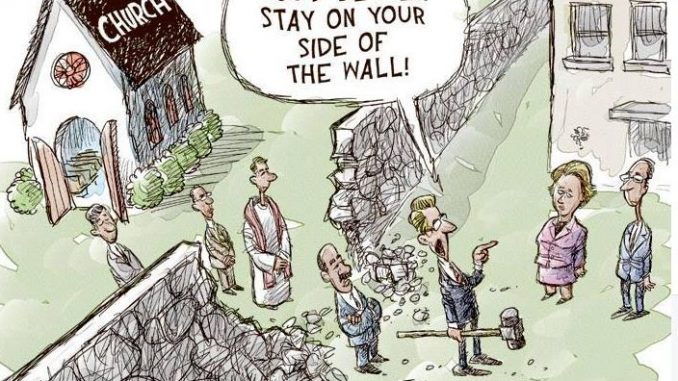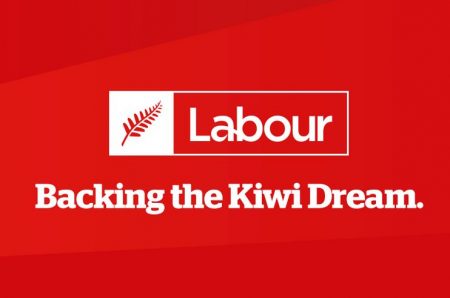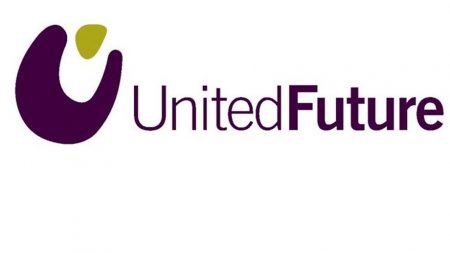

The issue of Religious Instruction is generally something that politicians like to avoid. A few (very few) state a clear stance on it but generally, political party lines are vague and include platitudes about “choice”, “community”, “tolerance”, “democracy” and “education”. Their understanding is more superficial than informed. Their willingness to consider the morality of imposing a religion on a school lacking. Their desire to make it an issue… non-existent.
Unfortunately, battling religious indoctrination is a risky proposition for a politician. There is a perception that lots of people are Christian or sympathise with Christians. However, this is increasingly untrue. Census results show a fast decline in Christian affiliation over the last 50 years to the point where self-labelled Christians now make up less than half the population with only around 10% attending church regularly. Even less would be considered evangelical Christians.
Why do we still have blasphemy laws? Why does our law continue to protect Christian religious privilege and discriminate against the rest of us? Why are we still allowing religious zealots into our tax-payer funded, non-religious primary schools?
On 14th July 2017, I emailed all the main political parties (and a couple of smaller ones) and asked them what their policy was on religious instruction in state schools. Here’s what they said.
National Party
Despite several requests, including emails sent directly to Minister of Education, Nikki Kaye, I got no official reply from the National Party. Previous Minister for Education, Hekia Parata famously said that if parents don’t like it, they can “choose another school“. Thanks for standing up for human rights, National! I managed to get a response from Todd Muller, who sits on the Education and Science Select Committee. Read more…
The Act … allows Boards of Trustees to determine whether to include some, all, or no classes in religious education. It is for parents to decide to send their child to a school that either offers religious instruction or doesn’t, and whether or not their child attends those classes.
Hekia Parata in 2014

Labour Party
Chris Hipkins was against religious instruction when asked about it before the election in 2014. Labour have been willing to speak out and ask for a review of religious instruction in the past. Would the stance still be the same? Read more…
New Zealand has an inclusive and secular state school system. Students should not be segregated based on religion. Religious instruction should not happen during regular school hours. No child should feel excluded or marginalised based on their or their families values or beliefs. Labour is open to a review of how s78 is being applied.
Chris Hipkins in 2014
Green Party
Catherine Delahunty has been outspoken against religious instruction and the Greens have been consistent in this message. However, she sits on the Education & Science Select Committee, who recently reviewed proposals for updating the Education Act, including submissions to revoke access to primary school children for religious instruction. They ignored these proposals and made no recommendations on this issue. Why not? See what they had to say about religious instruction. Read more…
The Green Party supports an inclusive education system. When families have to opt out of religious education it risks a child feeling excluded and their values or beliefs undermined. Education about religions is legitimate but not as “instruction”. A first step should be families who want RI to “opt in” at state schools, not the other way around.
Catherine Delahunty in 2014
NZ First Party
NZ First have a growing following of people with a reputation for being older, more traditional and likely, more religious. The quote from her in 2014 is actually wrong that boards of trustees are required to consult communities. NZ First don’t want to dictate to communities? Sounds like a cop-out! Find out what Education Spokesperson, Tracey Martin has to say about their policy on religious instruction. Read more…
The Act requires BOTs to consult with their community every 3 years around the provision of RI – the school is technically closed during this period – we are prepared to have nationwide discussion but not prepared to dictate to communities.
Tracey Martin in 2014

Māori Party
Past Māori Party leader, Pita Sharples opposed change back in 2006 when the Education and Science Select Committee put forward a proposal to make sweeping changes to religious instruction. It doesn’t look like much has changed since this quote from Te Uruoa Flavell three years ago. Considering how Māori affiliation with Christianity is declining as quickly as Europeans, they should really be supporting truly secular education system. Read more…

ACT
ACT are considered to be pretty right wing. They support charter schools with a passion, which opens up education to religious groups, with the benefit of taxpayer support. It’s a problematic proposal as it’s often all good if it’s “your religion” but not if it’s another religion. See what they had to say about religious instruction. Read more…
ACT will increase choice in the NZ education system so that parents and children can find schools that suit their needs and preferences. The current ‘one size fits all’ does not work for 20% of our children who are under achieving. A Party vote for ACT will give all schools in NZ the right to choose whether to become a Charter/Partnership school.
Jamie Whyte in 2014
Conservative Party
I’m going to repeat a claim from the 2014 election, when Colin Craig was party leader. This is a Christian party with a Christian agenda. I was pretty surprised at what a detailed and expansive response I got from party secretary, Kevin Stitt. Based on what he said in emails to me, the Conservatives may as well go ahead and state that they are promoting old-fashioned “Christian values”. See what they had to say about religious instruction. Read more…

The Opportunities Party
I find The Opportunities Party really interesting. They haven’t been afraid to stand up and identify some serious social and economic issues and go on to propose some radical solutions of their own. Gareth Morgan doesn’t seem worried about fitting in with expectations of the left or right. They could turn out to be a positive influence on the whole election process if they can get enough traction and stay visible. See what they had to say about religious instruction…. Read more…
Democrats for Social Credit
I didn’t really know much about this party but they appeared to have been around for a while. The Democrats for Social Credit are a party I remember from years ago. They don’t have a large following but they’re active on economic policy. Here’s what they have to say about religious instruction. Read more…
No responses from the parties below…

United Future
United Future’s website headlines a photo of Peter Dunne standing in front of a crowd of bemused school kids who aren’t sure who he is or why he’s there. At least that’s how I feel and I expect they can relate. No response from United Future but with a team of 8 people running the party (three of which didn’t want their photo on there), I guess they are stretched! Here’s what Damian Light, Party President and Secretary and candidate for Botany said in 2014…
United Future believes that our education system should be inclusive and not create division. Some schools may offer religious education which we are not opposed to. We do encourage people to be involved in their children’s schooling where possible, to ensure that they’re getting the education they want.
Damian Light in 2014
 Mana Party
Mana Party
Who knows what Hone Harawira thinks? He’s keeping it a secret. This is what Miriam Pierard said in 2014 when they were the Internet Mana Party. I think it’s a great policy but I can’t guarantee that it’s the same now… or tomorrow.
We would like to review this section of the Act as we support an inclusive and secular state school system. Religious education can be enlightening if it covers many religions and philosophies equally, but religious instruction often promotes only a Christian view. This can exclude and stigmatise children whose families choose to opt out.
Miriam Pierard in 2014
So there you have it… would you vote for a political party that endorses religious groups having access to indoctrinate kids in tax-payer funded state primary schools? Ask them why they think it’s ok! I won’t be voting for anyone who isn’t planning to repeal the laws that allow it. What do you think? Comment and share this!







Leave a Reply
You must be logged in to post a comment.